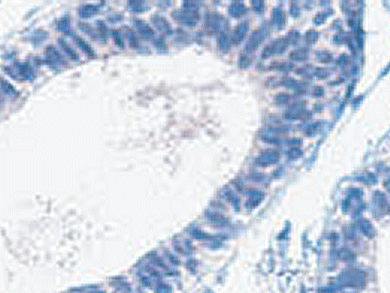In order to combat breast cancer’s increased resistance to common drug treatments, researchers have been seeking novel molecular targets for antibody-based and molecule-based drugs treatments. Proteins associated with enhanced tumor aggressiveness could be potential therapeutic targets to fight cancer.
Edison Liu, A*STAR Genome Institute, Singapore, and colleagues have discovered that serine protease inhibitor Kazal-type 1 (SPINK1), a secreted protein, plays a key role in tumor aggressiveness in breast cancer. SPINK1 is a protein commonly expressed in digestive organs and tissues, such as the pancreas. Its primary role is the inhibition of digestive enzymes. It is not expressed in normal human breast tissue, but it was found to be present in breast tumors.
Cell culture experiments showed that reducing the expression of SPINK1 in breast cancer cells – normally expressing high levels of the protein – reduces cancer cell survival. Increasing SPINK1 levels in breast cancer cells, on the other hand, confers drug resistance to the cancer cells. Liu links his findings to a drop in the expression of proteins that mediate cell death, and an increase in the expression of proteins that keep cells alive.
Enhancing the expression of SPINK1 in breast cancer cells in mice accelerated the migration of cancer cells and increased tumor spread which could account for the link between SPINK1 expression and cancer recurrence in patient groups. Currently the reseachers are seeking to identify the receptor through which SPINK1 acts.
- Combined genomic and phenotype screening reveals secretory factor SPINK1 as an invasion and survival factor associated with patient prognosis in breast cancer,
Wendy WeiJia Soon, Lance David Miller, Michael A. Black, Cyril Dalmasso, Xiu Bin Chan, Brendan Pang, Chee Wee Ong, Manuel Salto-Tellez, Kartiki V. Desai, Edison T. Liu,
EMBO Molec. Med. 2011, 3(8), 451–464.
DOI: 10.1002/emmm.201100150




